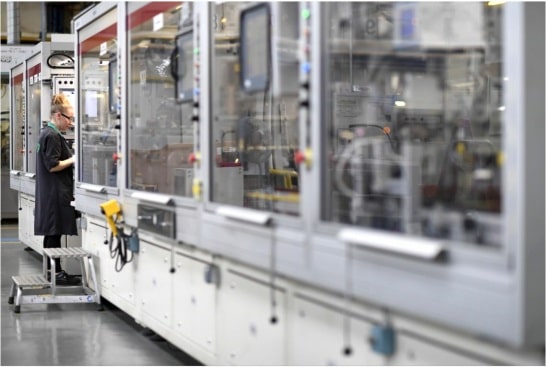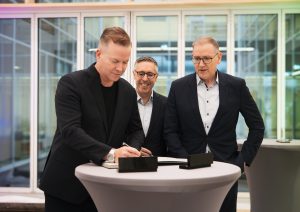Wilo: Shared-Source Software for Industrial Automation

Wilo drives the development of a vendor-agnostic “plug and produce” software ecosystem for industrial automation. (Image source: WILO SE)
For the first time, IT and OT software vendors, industrial end users, OEMs, and academics will share a common automation software layer across their automation technology — regardless of brand.
UniversalAutomation.org will drive the development of a vendor-agnostic ecosystem of portable and interoperable “plug and produce” software that can run with almost any hardware. By decoupling software and hardware, sharing a reference runtime implementation of the IEC 61499 standard, and merging the information technology (IT) and operational technology (OT) worlds, the organization seeks to create an entirely new category of industrial automation and unleash the full potential of Industry 4.0.
"We have to rethink current systems, processes and collaborations in order to be able to create sustainable, innovative and agile next-generation automation structures," says Georg Weber, CTO of the Wilo Group. "UniversalAutomation.org is truly the beginning of a new era for industrial automation in this respect."
Organizations involved in UniversalAutomation.org include: Aalto University, Advantech, Asus, Belden, Cargill, eaw Relaistechnik GmbH, ESA, ETP, Flexbridge, Georgia-Pacific, GR3N, Hirschmann, HTW Berlin, Intel, Jetter, Johannes Kepler University Linz, Kongsberg Maritime, Lawrence Technological University, Lumberg Automation, Phoenix Contact, ProSoft, Schneider Electric, R. Stahl, Shell, VP Process, Wilo, Wood and Yokogawa. Others are expected to join soon, with the organization actively recruiting new members.
Members will work together to develop and adopt the next generation of universal automation solutions by collectively incrementing the runtime following shared source principles. Members will have access and the ability to shape the next generation of automation. All entities looking to help advance industrial automation are encouraged to join.
“Industrial operations are undergoing a total transformation,” said John Conway, President of UniversalAutomation.org. “As the IT sector has proven, advances in machine learning, augmented reality, real-time analytics, and the IoT hold great promise for step change advancements in performance, agility, and sustainability. However, within industry this promise is being held back by closed and proprietary automation platforms that restrict widespread adoption, hamper innovation, are challenging to integrate with third-party components, and are expensive to upgrade and maintain. Using a shared runtime changes all that.”
Portability is already a reality in other market sectors. For example, mobile applications are developed to run across different smartphone vendors, enabling rapid advances through collective innovation. Until now, the industrial world has worked differently, with closed proprietary architectures and hardware-dependent software.
Greg Boucaud, Chief Marketing Officer of UniversalAutomation.Org commented: “UniversalAutomation.org is hitting the reset button on automation technology. Using the IEC 61499 standard for distributed systems, we can create a new, open industrial environment that will lead to a more sustainable, efficient future. UniversalAutomation.org will remove the barriers to innovation in automation by decoupling hardware and software and providing end users with the freedom they have been asking for — to easily integrate different technologies regardless of where they came from and fully optimize their automation systems.”
Source: WILO SE







